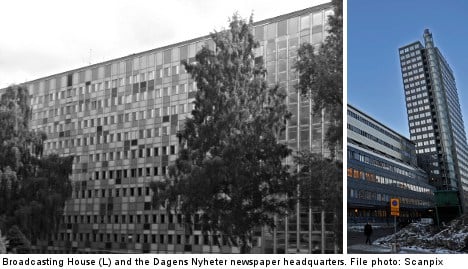The report, released in January, recommended that bureaucrats be given the power to “remove journalistic status”.
“It is not up to politicians to define who is a journalist,” Arne König, the Swedish president of the European Federation of Journalists (EFJ), told The Local.
The recommendation read: “Media councils should have real enforcement powers, such as the imposition of fines, orders for printed or broadcast apologies, or removal of journalistic status.”
The EFJ recently posted a reply to the high-level working group’s recommendations, which The Local was given access to.
The federation said it had not been consulted by the working group, despite several offers to the EU Digital Media Commissioner Neelie Kroes, who assembled the working group, to give its view on the issues at hand.
“We deeply regret that the Commission and the [high-level group] did not consider the only truly representative journalists’ organization as a valuable stakeholder to be heard and listened to,” read the letter.
The reply also inferred that the high-level working group had breached one of its own recommendations of multi-party dialogue by failing to include the union in its deliberations.
König told The Local that the Commission and the EJF normally had frequent and productive meetings, and underlined that at this stage the report was simply a non-binding proposal.
“The high-level group doesn’t have any legislative mandate, so the proposal could end up in the bin,” he said.
The EJF also underscored that what they called “the cases of spectacular misbehaviour of a small group of UK journalists” should not be allowed to taint all European media.
The letter added that it was inappropriate to make “the ‘Leveson’ issue an EU issue because there is no ground for it,” referencing the UK’s Lord Leveson inquiry into the News of the World wiretapping scandal.
The union was not wholly critical of the report, which, among other things, called for “vigilance” at a time when media ownership, especially online, is becoming more concentrated.
“The dominant position held by some network access providers or internet information providers should not be allowed to restrict media freedom and pluralism,” the high-level group report noted.
“I do welcome that the report talks about media ownership and that it calls for greater transparency,” König said.
“From the Swedish point of view, transparency is needed when the union takes on copyright infringements. One of our members in Sweden can have their work stolen by a media outlet anywhere, and we need to know who the owner is in order to go to court.”
He echoed the report in saying that greater transparency was especially important in the would-be union member states. The high-level group recommended that “a free and pluralist media environment must be a pre-condition for EU membership.”
“Media ownership is particularly opaque in eastern Europe, where many owners prefer to remain in the shadows,” König said.
“We had a case in one of these countries where a journalist wrote a very critical article about an organized crime boss, who turned around and told her ‘I own this paper, who the hell are you, you little sh**, to write such things about me?'”
The woman in question had not been privy to who financed the media outlet.
“Journalists need to know who they’re working for,” König said.
Traditionally, he said, the EU had stayed far away from media questions. König welcomed that the report had underscored the democratic importance of the free press.
“But then they miss the target with the ‘media councils’, and they completely miss the target when they start talking about defining what a journalist is.”
Ann Törnkvist



 Please whitelist us to continue reading.
Please whitelist us to continue reading.
Member comments